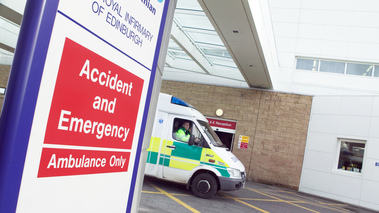National Institute for Health and Clinical Excellence (NICE)
|
|
Make a single person responsible for discharging patients to avoid delays
Hospitals can avoid delays in discharge by making a single health or social care practitioner responsible for discharging patients, NICE says.

The recommendation comes from NICE’s latest social care guideline which aims to improve the transition between inpatient hospital settings and community or care settings for adults with social care needs.
Delays in the discharge of patients place a huge burden on the NHS. Figures from NHS England show that more than a million hospital days were lost due to delayed discharges over the past year. In September, 5,247 patients were delayed from being discharged, which is the highest figure so far in 2015.
Ensuring people also receive the most appropriate services when they are discharged from hospital also has a crucial effect on a person's wellbeing. It can speed up their recovery and ensure they are not readmitted because they are not receiving the right support at home.
The new guideline aims to ensure people with social care needs who need hospital treatment get the support they need to leave hospital in a timely manner. The guideline will also help to avoid repeated hospital stays.
Appointing a single point of contact
NICE recommends that a single health or social care practitioner should be made responsible for coordinating a person’s discharge. The discharge coordinator should be the central point of contact for health and social care practitioners, the person and their family during discharge planning.
Health and social care organisations should agree clear discharge planning protocols. The discharge coordinatior can be a member of the hospital or a designated discharge coordinated post can be created for this.
NICE says that the coordinator should be selected according to the person’s care and support needs, and that a named replacement should always cover their absence.
Furthermore, while planning for discharge, the discharge coordinator should share assessments and updates on the person’s health status, including medicines information, with both hospital and community-based teams.
Avoid unplanned and uncoordinated hospital discharges
The guideline calls for continuity of care for people being transferred from hospital, and particularly for older people who may be confused or who have dementia.
Hospitals should ensure that any pressure to make beds available does not result in unplanned and uncoordinated discharges.
In addition, hospital and community teams should work together to tackle factors that could prevent a safe and timely transfer of care from hospital.
This should take place from admission, or earlier if possible, with factors that should be tackled including:
- homelessness
- safeguarding issues
- lack of a suitable placement in a care home
- the need for assessments for eligibility for health and social care funding.
Escaping the ‘revolving door’ of care
Professor Gillian Leng, deputy chief executive and director of health and social care for NICE, said: “A smooth and timely transition from hospital back to their home environment – whether that’s their own home or a care home – has a positive effect on a person’s wellbeing and can speed up their recovery. It should also help ease the pressure on hospitals and avoid people becoming caught in the ‘revolving door of care’ – when they are readmitted because they’re not getting the right support at home.
”Having a plan in place to ensure adequate services are available in the local community and are able to cope with any seasonal or other pressures is vital.”
Anna Bradley, Chair of HealthWatch England, said: "We heard shocking stories which highlighted how poor coordination of health and social care services and a failure to put patients at the heart of discharge planning is resulting in far too many people being kept in hospital longer than necessary, as well as many being discharged too early and being readmitted to hospital soon after. This comes at a huge human and financial cost.
"All staff across both health and social care need to commit to involving patients and their loved ones in planning how and when they are going to leave hospital from the very first moment they are admitted.
“We are pleased that the system is starting to take steps to make improvements as set out in our discussions with the Department of Health earlier this year. We hope this new NICE guidance will help focus providers and professionals on working together to ensure that people are not falling through the gaps in health and social care and left without adequate care and support this winter."
Tony Hunter, Chief Executive of the Social Care Institute for Excellence (SCIE), said: “It’s really good that the guideline focuses on what should happen in hospital, from admission onwards and throughout someone’s stay, so that their discharge isn’t rushed or unplanned.
“We’re keen to encourage good collaboration between health and social care, and people’s experience of transition between hospital and home is a key indicator on how well integration is working.”


